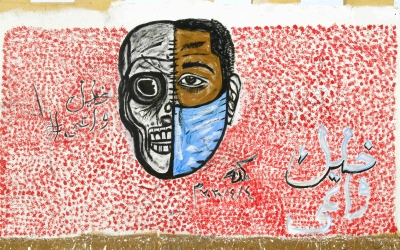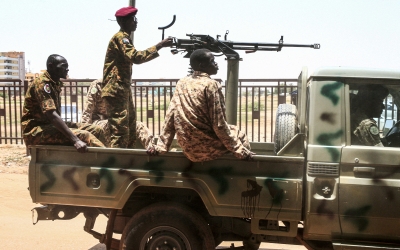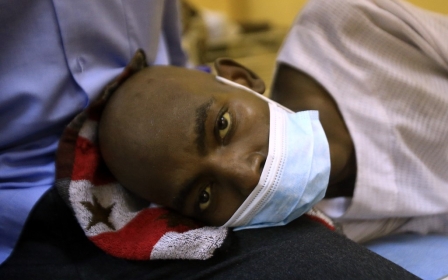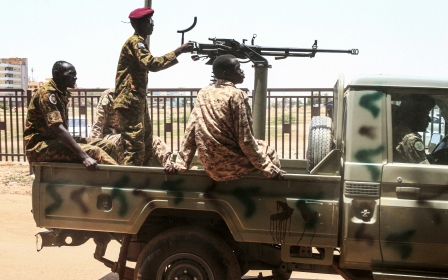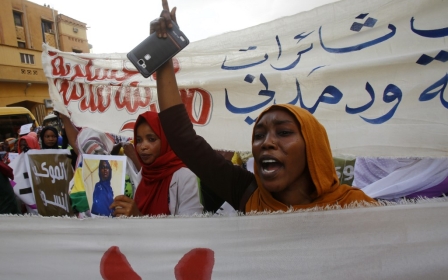Sudanese activists threaten protests if health minister fired
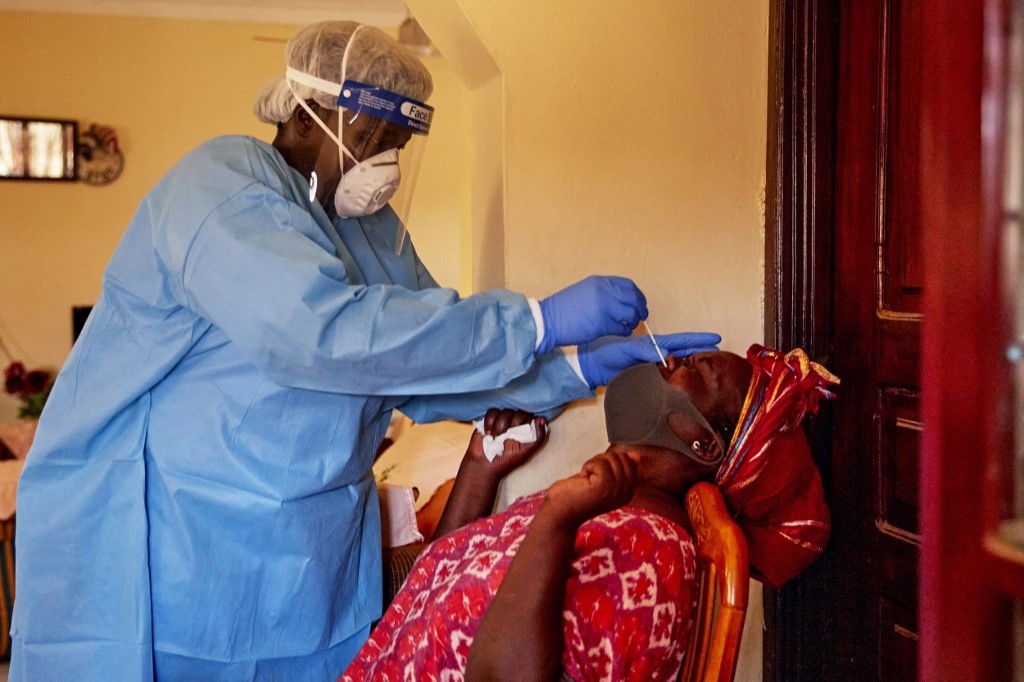
An attempt by Sudan's Sovereign Council to fire the country's health minister has been rejected by politicians and civil society groups, as disputes between the civilian and military members of the country's transitional administration continue to flare.
The Sovereign Council was forced onto the back foot this week, after Prime Minister Abdalla Hamdok and the Council of Ministers dismissed claims that they had collectively agreed to fire Minister of Health Akram Altoum, stressing that the Sovereign Council did not have the authority to dismiss ministers.
The news has revived fears over the military's influence over the Sovereign Council and has prompted the influential neighbourhood resistance committees to call for protests despite the country being under lockdown due to the coronavirus pandemic.
Unconstitutional statement
Altoum has led the country's efforts to confront the virus, but took a stand last month against security forces when medical staff came under attack from police. As of Saturday , the nation had 1,964 confirmed cases of the coronavirus, including 91 deaths.
Amid a spike in cases since the start of May, Altoum warned last week that the country had entered a "dangerous stage" as it continues to face severe shortages of medical staff, medicines and protective clothing.
Rumours of his shock dismissal had begun to swirl this week after a press release purporting to be from the transitional leadership, including the Sovereign Council, the Council of Ministers and the civilian Forces for Freedom and Change (FFC) coalition, was sent to reporters and posted on the Sovereign Council's social media pages on Wednesday.
These various officials, the statement said, "have agreed to task the Prime Minister to take the needed constitutional steps to remove the minister from his post," without offering reasons for the dismissal.
The statement drew an angry response on social media from pro-democracy campaigners and was removed with an hour. But soon afterwards, it reappeared on the Sovereign Council's pages without any clarification.
Later that day, in a daily coronavirus briefing, Minister of Information and government spokesperson Faisal Mohamed Salih stressed that the Council of Ministers had not decided to fire Altoum and that it alone had the authority to dismiss ministers.
"We all know that the Council of Ministers has the exclusive right to assess the performance of the ministers, so although there are maybe some differences in point of views about the performance of the Ministry of Health, that doesn't necessarily mean the ousting of the minister," Salih said.
"We believe that the minister is working under difficult circumstances against the spread of the coronavirus, and we believe that he is doing well."
Meanwhile, the prime minister's press secretary, Elbarag Alnazir, told Middle East Eye that the Council of Ministers had nothing to do with the press statement. The FFC also denied involvement, accusing the Sovereign Council of "complicating the already complicated political scene in the country".
"The country is facing serious challenges, including the coronavirus and tribal clashes among other things," a spokesperson told MEE.
In a statement, The Sudanese Professionals Association (SPA), a member of the FFC that was central to the protests that forced the removal of longtime ruler Omar al-Bashir in 2019, called the move "irresponsible" and said it was a "clear violation of the constitutional declaration which clearly gives the right of the evaluation of the ministers' performance to the Council of Ministers".
A 'military council'
Sudan's transitional Sovereign Council, which began ruling the country in August and comprises five military and six civilian representatives, is tasked with guiding the country towards elections in November 2022.
Some civilians have charged that military factions exercises too much power over the committee, and fear the army seeks to exert full control over the country.
Reports of a foiled coup attempt last month by Bashir loyalists in the army has further rocked relations between the civilian and military components of the ruling body.
In a dramatic move, resistance committees that organised the grassroots civil disobedience campaigns against Bashir's rule said they were prepared to organise nationwide protests against the "provocative step" taken by the Sovereign Council in pushing for Altoum's dismissal, describing it as a "military council".
"We warned the military council that is still trying to rule the country that the ouster of ministers and intervention in the work of the civilian government is a serious red line for us," a joint statement by neighbourhood resistance committees of Khartoum read.
"We accepted a partnership between civilians and the military in August 2019 in order to go forward towards civilian rule, not enable the military to dominate."
Zuhair Fadul, a leading member in the resistance committees, told MEE that spontaneous protests had already begun in support of Altoum on Wednesday night in some neighbourhoods of Omdurman, the twin city of the capital Khartoum, but added that the demonstrations were quickly dispersed by the police.
"Thousands of pro-democracy protesters have marched in Omdurman supporting the minister of health, but the Rapid Support Forces [paramilitary group] and the police have violently cracked down," he said. "They arrested a number of them and even shaved the heads of a number of protesters without clear reasons before releasing them."
Another leading member of the local committees, Emam Ahmed, told MEE that the neighbourhood groups had agreed to violate the lockdown if the government insisted on ousting Altoum.
"We know that the military is behind this and that this is a reaction against the minister for criticising forces over their attacks on the doctors. We have vowed that we may even break the coronavirus lockdown measures if any further steps are taken," he said.
The Sovereign Council did not respond to MEE's requests for comment.
Sudanese political analyst Ahmed Mahmoud said that the constitution prevented the Sovereign Council from removing the minister, but that it could put other obstacles in his path. He added that civilian and army factions needed to find more common ground if 2022 elections were still to go ahead.
"These disputes are an example of the mistrust between the two sides, and I believe that they will continue unless they engage in deep discussions to resolve their disputes and distance themselves from the regional intervention," he said.
Middle East Eye delivers independent and unrivalled coverage and analysis of the Middle East, North Africa and beyond. To learn more about republishing this content and the associated fees, please fill out this form. More about MEE can be found here.


